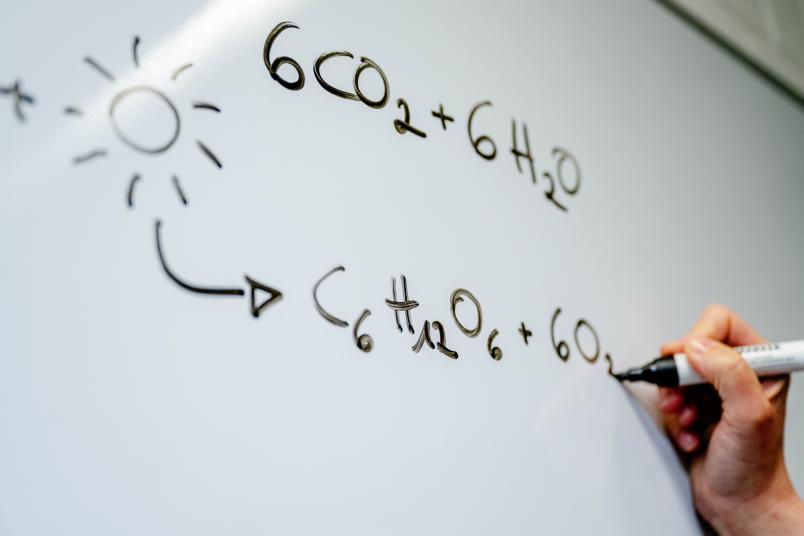
Teaching Biology
No More Stressing Out over Structural Formulas
Oh dear, chemical formulas! With just a few simple tips, students can prevent stress and ruining their grade in a biology test.
Structural formulas are a source of dread for many students, but they’re an essential tool in biology lessons. A joint study by biology didactics expert Dr. Nina Minkley from Ruhr University Bochum, Germany, and chemistry didactics expert Dr. Sascha Bernholt from the Leibniz Institute for Science and Mathematics Education in Kiel, Germany, have shown that the stress levels of students working with chemical formulas are significantly reduced if they are given simple tips on how to deal with these formulas. “Therby, also their overall performance increases,” says Nina Minkley, head of the study. She and her team had 136 high school students take a test with and without tips and compared their performance and stress levels. They published their findings in the journal Research in Science Education from June, 26, 2024.
Chemical formulas are actually taught in chemistry classes, where they are systematically introduced at the junior level. In biology, they’re used in several fields, for example when studying the photosynthesis reaction. “Experience and previous studies have shown that complex structural formulas in particular can lead to stress reactions, and many students have considerable difficulties with them and try to avoid them,“ reports Nina Minkley. “In biology classes, however, there’s not enough time to systematically introduce the formulas all over again.”
H stands for hydrogen
Her idea was, therefore, to give the students tips that would make it easier to master formulas. One such tip could be that the letter H stands for hydrogen, or that carbon, denoted by the letter C, can have a maximum of four bonding partners.
For their experiment, the researchers first asked a group of 136 high school students to take a preliminary test to determine their prior knowledge of structural formulas. The participants then wrote a test in which half of them received tips and the other half didn’t. The researchers compared the results of the tests as well as the subjectively perceived stress levels and the stress levels measured objectively using heart rate variability.
Less stress, better performance
“We observed that the students who’d received tips were less stressed and performed better than the control group who hadn’t been given any tips,” says Nina Minkley. The researchers factored out the impact of prior knowledge for the purpose of the study. “Such simple hints, which are easy for teachers to give, could help students to focus on the essentials in assignments and tests – which are, after all, not about understanding the structural formula.” The research team also argues that too much stress can lead to cognitive decline, which can hinder the recall of previously learned information. This problem could be avoided by providing tips on the formulas.
In addition to stress and performance, the team also assessed the impact of the tips on the students’ self-efficacy. “We found that there was virtually no difference,” concludes Nina Minkley. “The students were well aware that their knowledge of structural formulas was incomplete – with or without tips.”